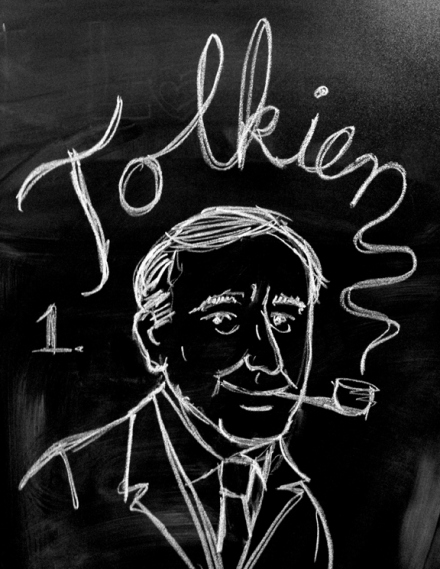Essay Topics and Study Questions on The Hobbit by J.R.R. Tolkien (08.01.14 by Robert Morris) - Comments
It would be easy if your professor asked you to describe the adventures of Bilbo Baggins and analyze your favorite character from the story. However, writing literature reviews is a daunting task that’s made complicated mostly because of most professors’ inclination to comparative questions that confuse even those students who have read the book and memorized the smallest details.
In the continuation, we will help you tackle the challenge of reviewing The Hobbit by suggesting essay topics and providing guidance on the most common study questions associated to this book.
Suggested topics for essay
1. Describe how Tolkien relies on humor to portray the adventures in The Hobbit. Which authorial techniques does he use to bring a light element to the most serious parts of the plot? Does this style of writing make The Hobbit a comedy?
2. How does Tolkien portray the importance of wealth? What is the attitude towards material goods and property of the characters in The Hobbit? Whose approach is praised and approved in the book and why?
3. What factors does the author use to define the characters’ identity in The Hobbit? Are the persons in the plot determined by race, family and other static factors, or they have power over their personal development?
Study questions
1. Does Thorin fall under the definition of a ‘hero’? Is the death of this character expected and justified after his actions throughout the novel?
Thorin is a complex individual that shows both lovable and repulsive characteristics. By the start of the Battle of the Five Armies, Thorin Oakenshield deserves disrespect and antipathy by most readers and many of the characters in the book. However, his personality also has aspects worthy of respect, especially when he shows exceptional bravery and determination while reclaiming the treasure of his ancestors from Smaug. He rises and falls throughout the book, and his failings are mostly associated to the common characteristics of all dwarves – imperious ego and greed for gold.
Thorin’s greatest sin is the ingratitude he shows to the characters that support him, such as the lake men who gave their lives for the victory over Smaug. Thorin is so adamant about the legitimate right to that gold, that he is dishonorable to his benefactors. However, to his credit, he does regret his mistakes in the end and admits his wrongs to Bilbo. However, it is nearly impossible to list this character under the ‘heroic’ category. The main thing he lacks is the ability to think of plans and execute them. Bilbo is the one who gets him through the difficulties that come at his way.
2. Bilbo seems to be completely happy in the hobbit community, but he is not entirely accepted there. At the end of the novel, does he belong in Hobbiton? How can the relation between simple life and heroism be balanced? How does Tolkien approach this issue?
Heroism seems contradictory to the simple life at the beginning of the novel, but these two concepts become complementary at the end of the novel. Bilbo’s resumption of the simple life after proving his courage and wisdom is part of his heroic characteristics. As Thorin says, if all proud warriors learned from the way hobbits live, the world would be a much happier place. When Bilbo returns to Hobbiton and embraces simple life at the end, he proves that evil is obsolete.
Even though Bilbo doesn’t belong in the community as far as the hobbits are concerned, there is no other place he belongs to more to than Hobbiton.
3. Are humans portrayed as a good race? Where do they fit in between the races of Middle-Earth?
All races of Middle-Earth possess very distinguishing, constant characteristics. Humans have goodness in them, but this aspect of their personality varies. Tolkien presents humans as creatures capable of determining their own graciousness. Bard, as a great example, is grim, but a kind man that can easily be dubbed as a hero. The old Master of Lake Town, on the other hand, is devious, calculating, and selfish in a way that is almost pitiful when he dies seizing the stolen gold out in the desert.
Although the good in humans often prevails, they are somewhere in the middle between the goblins, who are the really evil ones, and elves, who are the true good race.
About the author
The post is written by Robert Morris. Robert is a great fan of Hobbit, crafting essays on Hobbit topics is his favorite. Follow Ninjaessays on Twitter!
Spread the news about this J.R.R. Tolkien article:
